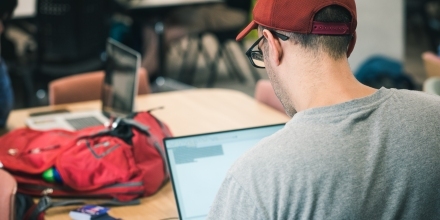To pwn, or be pwned, that is the question. Or in this case, the name of the winning team of this year’s Capture the Flag event, held virtually by the Australian Signals Directorate (ASD) on Wednesday 9 September 2020 at The Australian National University (ANU)
The winning team of six ANU students entered the online competition run by the ASD-ANU Co-Lab. They only expected to have some fun, practise their problem-solving skills and maybe learn something new, while getting hands on experience cracking cybersecurity and cryptography challenges.
“We weren’t supposed to win,” said one Pwn or Be Pwned team member. “We thought we were dead last, but did the complete opposite of what we intended.”
The winning team consisted of computer science, philosophy and criminology students. To win the challenge, they maximised their chances by splitting problems among themselves, which allowed them to get the points that led them to victory. They tackled problems in software reverse engineering, digital forensics, computational linguistics and mathematical cryptography.
“It was fun taking things apart piece by piece, finding the vulnerability and thinking how I could exploit it,” said one of the members of the winning team.
Capture the Flag competitions consist of assorted cyber security and cryptography problems and puzzles. Participants work in teams, and it provides a hands-on learning tool for anyone interested in developing their skills in cyber defence and attack methodologies.
The ANU-ASD Co-Lab have been running annual Capture the Flag competitions since 2019. This year it was hosted entirely online, with staff from both organisations contributing their expertise and advice to participating students. A total of 12 teams participated, and if the non-stop server chatter was anything go by, competitors were kept on their toes.
If you’re undertaking an undergraduate degree and have an interest in learning more about research and careers in national security, we have a range of programs for you. Visit the ASD-ANU Co-Lab website or email co-lab@anu.edu.au to find out more.

